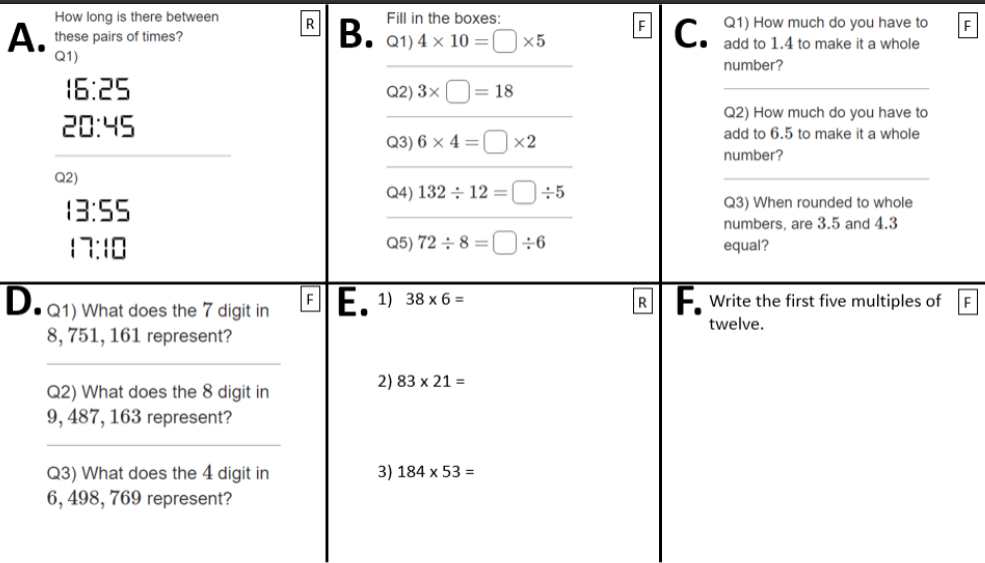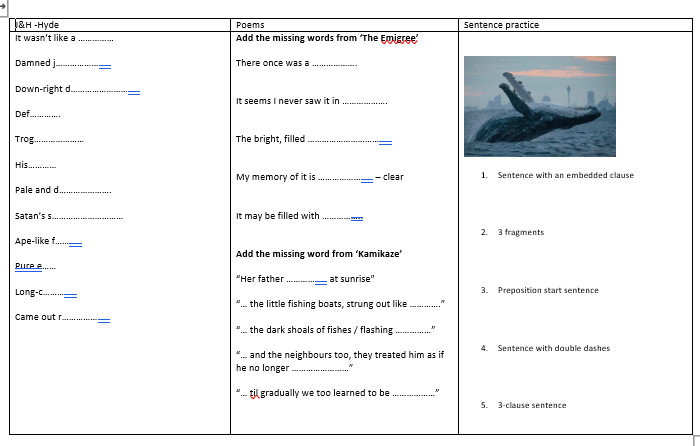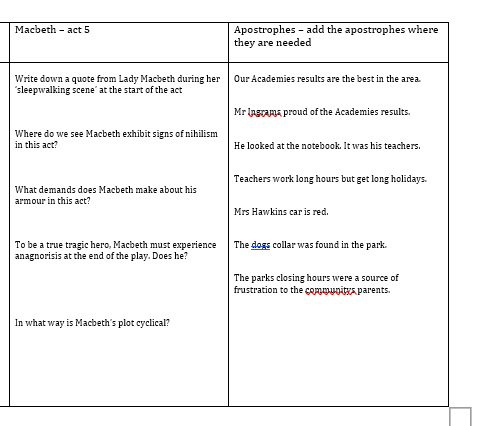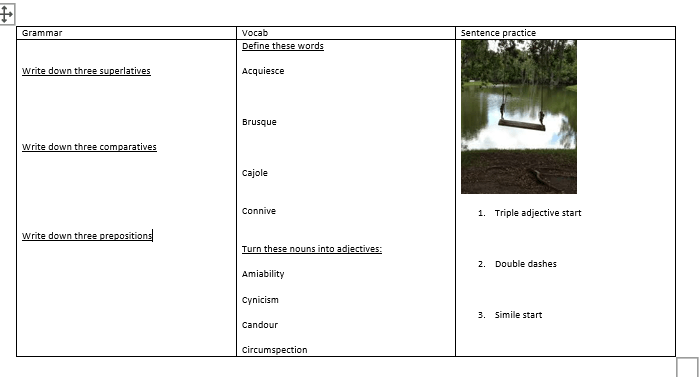Rank Order Assessment is a pretty emotive subject. There are people who think it is diabolical – indeed, the Executive Principal at the Academies I work at was called ‘cruel’ just last week when he spoke at an event about it. However, I think it can be absolutely transformative at key stage 3 and that any short-term unhappiness or disappointment it might cause students, its longer term impact more than makes up for.
For anyone unsure, Rank Order Assessment is the process of assessing students, ideally through formalised examinations, and then ranking them from top to bottom performer in each subject and overall. What a school can do with that information varies, but in its purest form, the overall rank will be used to stream students, with, say, your top 30 ranked students being placed in set one, your next 30 being placed in set two, and so on. Streaming means they will be in the same ‘set’ for all their subjects. Students know where they ranked at both subject and overall level. We didn’t come up with the system, we took the idea from Burlington Danes in London under the leadership of Dame Sally Coates who took it from Sacred Heart Catholic School, whose headteacher, Serge Cerfai started it and 10 years later remains as passionate as always about its impact. We have been running it for five years now and have tweaked and changed things over the years to make it something that works for our students in our context.
At my Academies, we assess and rank students four times over the course of key stage 3: It happens for the first time at the end of year 7 and determines their stream at the start of year 8; in the middle of year 8 we do it again and re-stream accordingly; at the end of year 8 they are assessed ready for their streams at the start of year 9 and then midway through year 9 it happens for the last time. We triple-weight English and maths and double-weight science for the overall rank, meaning that the stream students are placed in is largely determined by their performance in core subjects, but every subject counts.
The most common question I am asked when I tell people about this system is: “so the child who is 180th in a year group of 180 knows they are 180th?” And when my answer is “yes”, they look aghast and question whether giving them at information is ‘fair’ or ‘kind’. The well-used response all staff at my Academies will give, is: “is it fair not to tell them?” We all know that GCSE scores are not based on any kind of arbitrary grade boundaries and so that the student who gets a ‘1’ in, say, their English GCSE in year 11 is essentially being told they have performed in the bottom 1% nationally in their examinations. Why not tell them that that is where they are heading in year 8 when there is still time to do something about it? We give students the full ‘results day experience’ when they receive their ROA results. Staff man tables with brown envelopes and students collect them, choosing whether to open them with their friends or to take them to a quiet corner or even wait until they get home. They experience the nerves, the hope that their work has paid off or last-minute admission to themselves that they didn’t really give it their all and quiet fear that they may be about to feel the impact of that. When they open the envelopes they shriek with delight – “I’m going up to set three!”; “I’ve gone up 15 places in the rank!”; “I came first in drama!” – or screw the paper up in disappointment – “I’m going down a set”; “80th in maths? I was 25th last time”; “I’ve dropped 8 places”. Sometimes there are tears and that is never easy to see but I would rather they cry now. I would rather they realise now that they are not working as hard as their peers. I would rather they approach a teacher now to say ‘I don’t know what’s gone wrong’. I would rather all these things happen in year 7 or 8 or 9 while there is still time to do something about it.
Rank Order Assessment is the only way we summatively assess key stage 3 students, the only ‘data’ we expect staff to generate and results from it is the only thing we report to parents – a percentage mark in each subject, the subject rank and the overall rank. There are no scores or grades or prose-descriptor bands.
People who visit the Academies to look at ROA quickly realise that it is so much more than a key stage 3 assessment system; it is cultural. It has created a culture whereby younger students are held accountable for their academic performance and there is a real, tangible reward for hard work and a real, tangible consequence for lack of effort. It has created a culture where parents care about that piece of paper that lands in their hands twice a year because it means something. A friend who leads a department at another school local to mine despairs over the fact that he sends home reports highlighting students’ dismal performance in his subject but receives no contact from parents about it; they are told that their year 8 child should be achieving a ‘7’ but is currently on a ‘4’ and they just don’t seem to care. Why? Because it doesn’t matter! Nothing will happen! Parents tell themselves there is plenty of time to improve this and presume the school will ‘do something’ at some point to make that happen. Tell a parent their child’s underperformance means they are dropping to a lower stream and it is a different story. We run parents’ evenings the day after ROA reports go home and it is full of parents wanting to know exactly what their child needs to do to move back up to stream two next time, or exactly how they can help to ensure their child doesn’t drop another ten places because they know if it happens again it will be a stream move down. Most impact is felt in the core; I cannot count the number of meetings I have had with parents who are furious their child is “only going down because of maths” and leave those meetings knowing that the only way back up is to support us, and their child, in improving their performance in maths. So they start doing that not in year 11, off the back of a horrifying mock result with four months to go until the ‘real’ exams, but in year 8.
ROA has not only driven increased student effort and parental engagement, but also been a contributory factor in improving teaching and learning at key stage 3. The fact that students are never more than four months away from their next set of assessments means that there is a sense of purpose in their lessons that I would argue many schools do not achieve outside of year 11. It is really important that students are getting the same deal, and therefore the same chance to achieve in their assessments, in all classrooms, so stream 3 being given a substandard lesson in the function of the lungs whilst everyone else is being taught it well can have an actual impact on their ranking and therefore creates a culture where every lesson really does count.
People often ask whether ROA has the same impact for high ability students as it does for low, and in my experience, it broadly does. A student in stream one wants to stay there, and he or she knows that students in the stream below are snapping at their heels. A student in stream seven wants to ‘get out of the bottom set’. Even students who know they have little hope of moving out of that bottom stream – they will be aware that their literacy levels (usually a key driver) are inhibiting them – will still strive for an improved place in the rank, and I have just as many low prior attaining students bounding up to me on results day to tell me that they have gone up 4 places in the rank as I do high prior attainers grinning about maintaining their spot in the top stream. Essentially, Rank Order Assessment creates an environment in which everyone knows that they just have to work a bit harder, that they have to keep striving to do a bit better. There is no nonsense about ‘if you do X then you will achieve a 5, or a 7, or a 9, there is just a constant dialogue about how to do better.
I am often asked about how SEND students cope with, or feel about Rank Order Assessment, and my answer is that I cannot answer on behalf of this group any more than I can answer on behalf of students with blonde hair or size 5 feet! Some SEND students like it and some don’t; some SEND students find the experience exciting and some find it very difficult, in exactly the same way that all students have differing thoughts on the process. Whether we like it or not, SEND students will be assessed at the end of key stage 4 in exactly the same way as their non-SEND peers, so it would be wrong of us to ‘water down’ their ROA experience. SEND students get all exam access arrangements they are entitled to during the examinations and receive additional support according to their needs. For some students that will be using homework club for support with their revision, for some that will be accessing after-school sessions in managing exam stress and anxiety. Some ask a trusted member of staff to be with them when they are going into examinations and some like to open their results with someone who they know will support them if they are disappointed. Essentially they get the same support – recently noted as ‘exceptional’ – by Ofsted in Rank Order Assessment as our year 11 students get around their GCSEs.
A strong and supportive school is essential for students – SEND or otherwise -to thrive in a Rank Order Assessment system. Rank Order might seem like a rather ‘cold’ process, but done correctly it is the opposite. Done correctly it is an opportunity for students to feel the full force or what we, at my Academies, refer to as ‘wrap around care’: we supply booklets full of advice about the examinations themselves and revision sources; tutors deliver sessions advising students on revision strategies; teachers run lunchtime subject-specific revision classes and heads of year phone the parents of every student who is moving down a stream to see how they are feeling about the result and offer a meeting to talk through next steps.
I could keep writing about Rank Order Assessment for pages and pages and pages. Getting it right, from the communication with parents, to the setting of the examinations, to the actual process of creating the rank is a complex beast, and anyone reading this blog who is interested in these things is more than welcome to contact me for that information. There are countless arguments against it, and I am not going to address all those now although again, readers are welcome to put them to me!
Ultimately, it works for our students in our Academies. Our GCSE results are phenomenal and we feel that ROA at key stage 3 play a large part in this. Our parent view survey from our recent Ofsted inspection showed that 90% of parents were happy with the information we provided on their child’s progress. At a recent information evening with year 10 parents about assessment at key stage 4, parents were disappointed about the fact we no longer use ROA, and at parents’ evenings when told their child was on a ‘5’ or a ‘7’ or whatever, followed up with “yes, but where does that place them in the rank”? Students talk positively about it to visitors – yes, including those who are consistently placed in the lowest stream.
It might not be for everybody. But in the right context it can be, as I said at the start of this blog, transformative.




